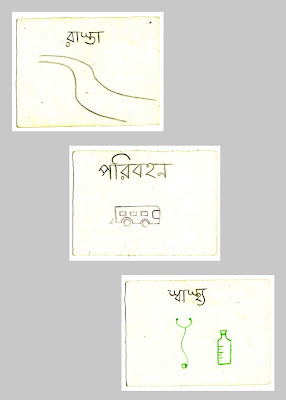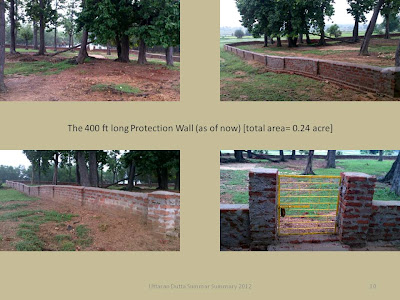My dissertation: Subalternity and Indigenous Existence: Negotiating Development Issues from the Margin
From a communicative perspective, this study seeks
to understand how development operates as discourse, in creating and
perpetuating conditions of structural absences, and how the subalterns at the
margins negotiate and enact their agencies in legitimizing their voices and
participatory actions in the discursive spaces. Historically, colonial and Brahminical
doctrine portrayed indigenous subalterns as inferior and sub-human;
subsequently, modernist epistemology driven dominant development approach
labeled them as objects or sites of reform and control. Mainstream development
communication approach employed unilateral tailored interventions in diffusing
development, and transferring technology in the underserved spaces to
‘modernize’ the subalterns. Increasingly structural, cultural, and contextual
issues have received importance in the contemporary theories of communication
for development and social change. This study embraced the theoretical and
methodological framework of the Culture-Centered Approach wherein the
development processes, and subaltern negotiations are theorized at the
interstices of culture, structure and agency of subaltern sectors. Attending to
the co-constructive epistemic foundation of Culture-Centered Approach, I
engaged in nine months long ethnographic field research in indigenous villages
of jungle, Himalayan, and coastal regions of eastern India; over which I
conducted 75 in-depth interviews, and wrote filed notes and reflexive journal
entries. My study documents articulations and agentic enactments of indigenous
subalterns in negotiating with material and communicative in-accesses. Studying
the dialogic and participatory engagement of indigenous villagers, this
research situates the subalterns as key stakeholders in identifying, and prioritizing
situated development needs, as well as in planning, organizing, and
implementing local development initiatives (e.g. building a mini-hospital, and
constructing walls to protect sacred trees and stones) to address structural
shortages. This research foregrounds alternate development rationalities as
emerged from the subaltern articulations, (a) in challenging the dominant
discourses and conceptualizations of development, and (b) in legitimizing
subaltern consciousness and praxis in bringing about social transformations.
Some Relevant Images:
Fieldwork Sites:
Himalayan Villages: Buxa-Duar Region
Jungle Villages: Purulia Region
Coastal Villages: Sundarban Region
Field work process:
Collection of ‘Development’ related keywords
Visual Cards (Road, Transportation, Health)
During Fieldwork
Development Project Decisions
Development Project Locations:
Village: Saloni (Jungle Region)
Village: Chunabhati (Himalayan Region)
Mini-Hospital Project:
Protection Wall Project:
Information Kiosk Project: Prototype Testing:
Initial version developed at Purdue University
Collective Sketching Sessions
Visual Representations: Local Culture
Visual Representations: Local Business and Agricultural Activities
Media Reports:





















